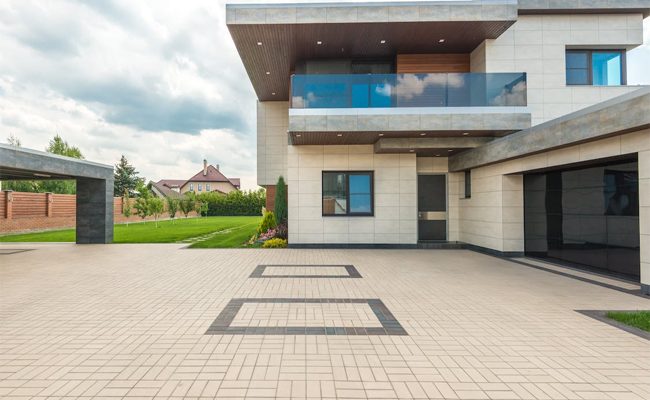
When it comes to upgrading or installing a new driveway, homeowners are often faced with a critical decision: should they opt for a traditional concrete driveway or choose paving materials like asphalt or interlocking pavers?
Both options have their merits and considerations, making it essential to understand the differences before making a choice. In this article, we’ll explore the pros and cons of paving and traditional concrete driveways to help you make an informed decision.
Traditional Concrete Driveways
Pros:
Durability: Traditional concrete driveways are known for their exceptional durability. They can withstand heavy loads and are less susceptible to cracking or shifting over time, making them an excellent long-term investment. Of course, make sure you let professionals handle making your concrete driveways. If you’re from Cairns and want professional work done on your driveway, try visiting www.concretecairns.com/.
Low Maintenance: Once properly installed and sealed, concrete driveways require minimal maintenance. Regular cleaning and occasional resealing are usually sufficient to keep them looking their best.
Versatility: Concrete can be customized to suit your aesthetic preferences. You can choose from various finishes, colors, and patterns to create a unique look for your driveway.
Weather Resistance: Concrete driveways can endure various weather conditions, including extreme heat, freezing temperatures, and heavy rain. Properly sealed concrete is also resistant to oil and chemical stains.
Cons:
Initial Cost: Concrete driveways tend to have a higher upfront cost compared to asphalt or some paving options. If built properly, however, the driveway’s longevity can surely offset the initial investment.
Cracking: While concrete is durable, it is not immune to cracking. Temperature fluctuations and soil settling can lead to minor cracks over time. Regular maintenance and sealing can help minimize this issue.
Curing Time: Traditional concrete driveways require a curing period, during which they should not be driven on or subjected to heavy use.
Paving Driveways (Asphalt or Interlocking Pavers)
Pros:
Lower Initial Cost: Paving materials like asphalt are generally more cost-effective upfront compared to traditional concrete. This can be appealing for homeowners on a tight budget.
Quick Installation: Paving driveways, especially asphalt, have a quicker installation process. They can often be completed in a shorter time frame compared to traditional concrete.
Flexibility: Asphalt driveways have a degree of flexibility, which can make them more resistant to cracking due to soil movement or freeze-thaw cycles. Interlocking pavers offer excellent design flexibility with various shapes, colors, and patterns.
Easy Repairs: If portions of a paved driveway become damaged, repairs are relatively straightforward. Asphalt patches or replacing individual pavers can be done with minimal disruption.
Cons:
Maintenance: Paved driveways typically require more maintenance than concrete. Asphalt driveways need regular sealing to protect against moisture and oil stains, while interlocking pavers may require occasional releveling.
Durability: While paving materials are durable, they may not last as long as concrete. Asphalt driveways, in particular, can develop cracks and potholes over time, necessitating repairs or resurfacing.
Aesthetic Limitations: While interlocking pavers offer design versatility, they may not suit every homeowner’s aesthetic preferences. Some homeowners prefer the sleek, uniform look of a concrete driveway.
Making Your Decision
Choosing between a traditional concrete driveway and a paving option like asphalt or interlocking pavers ultimately depends on your priorities, budget, and aesthetic preferences. With that said, here are some factors you should consider when making your decision:
- Budget: If you have a strict budget, paving materials like asphalt may be a more cost-effective choice upfront.
- Longevity: If you’re looking for a driveway with minimal long-term maintenance and maximum durability, traditional concrete might be the better option.
- Aesthetics: Consider the visual appeal of your driveway. Concrete offers customization options, while interlocking pavers provide a unique look.
- Maintenance: Think about the time and effort you’re willing to invest in driveway maintenance. Paved driveways typically require more regular upkeep.
- Climate: Consider your local climate and how it might affect the driveway material. Freeze-thaw cycles and extreme weather conditions can impact durability.
Conclusion
Both traditional concrete driveways and paving options have their advantages and drawbacks. It’s crucial to weigh these factors against your specific needs and preferences to make the right choice for your home. Consulting with a professional contractor can also provide valuable insights and guidance to ensure that your new driveway meets your expectations for years to come.
Leave a Reply